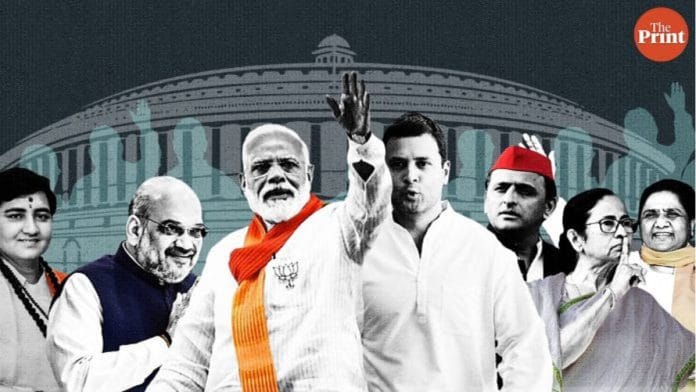Thank you dear subscribers, we are overwhelmed with your response.
Your Turn is a unique section from ThePrint featuring points of view from its subscribers. If you are a subscriber, have a point of view, please send it to us. If not, do subscribe here: https://theprint.in/subscribe/
A person changing their political affiliation is not new to Indian politics. It is not a sin to change one’s political affiliation. We cannot always expect humans to agree on the solutions to problems, dismiss the freedom to dissent or find better ways to address an issue. Moreover, the ideologies of any political party in India are not monolithic but still evolving, and they keep changing their stand on several issues. Hence, the possibility of dissent is inevitable. However, there are instances where the MLAs and MPs have shifted their affiliations for better ‘deals’. We have witnessed political leaders using the loopholes in Indian laws to change their affiliations and remain in ‘power’. Even at the obviousness of such events, why do citizens resort to inaction and indifference?
Horse trading, or the alleged corrupt practices involving under-the-table deals, poaching of political leaders, and vote trading, is not new to Indian politics. Over the last few years, we have heard of several instances of MLAs or MPs of one political party hidden in ‘luxury resorts or hotels’ for fear of another party ‘buying’ these MLAs or MPs or buying their votes or support. Suppose one party thinks its legislators could be ‘bought’, and the other believes they could buy them and expects to evade constitutional bodies. Isn’t it reflective of the citizens’ disinterest in the unfolding political crisis in the state?
The increased frequency of such instances and tendencies to evade dissent from political space is alarming, and discussions on possible solutions do not remain an option. The Parliament passed the anti-defection law in 1985 as the 52nd Constitutional Amendment Act. According to it, a member of a House belonging to any political party becomes disqualified if they give up the membership of that political party or if they vote or abstain from voting contrary to any direction issued by the political party without prior permission. Although the anti-defection law could keep a check on vote trading, equating a person’s ideology with affiliation to the political party is destructive to constitutional democracy. When parties in India keep changing themselves, and as legislators, the impacts are abysmal if you are not supposed to question them, even if the party fails to do good for the people. The need for democratic practices within political parties is inevitable to ensure that dissent is appreciated.
An exception to disqualification to anti-defection law is the merger of a political party with another when two-thirds of the members have agreed to the merger. The defection of 8 MLAs in Goa in 2022 has seen this provision used to evade disqualification, emphasising the relevance of giving weightage to the person contesting the election rather than the political party. When the opposition becomes the ruling party, there is no scope for discussions or deliberations left, failing the sole purpose of legislative bodies, which is a threatening situation. Dialogues on strengthening our constitutional democracy with the proactive participation of citizens are necessitated in such circumstances.
A set of complementary mechanisms of control, agenda setting and accountability beyond elections are essential to ensure effective governance and allocation of resources. The political recall is one such process by which citizens can remove elected officials from office before they complete their term. It is a mechanism of direct democracy and could be initiated by collecting signatures in a bottom-up approach. It is practiced in different countries at different levels of government. Bolivia, Cuba, Ecuador, Venezuela and Taiwan are five countries where all the elected authorities could be removed by direct recall referendum.
There were discussions at the Constituent Assembly about including the recall option in the Indian Constitution. A few bills, including the private member bill by Varun Gandhi in 2016, were introduced in Parliament. Institutionalizing a functional design for political recall, including the reasons for initiating the process, the period of activation, the number of signatures, the time to collect signatures, and the actions taken if the authority is removed, among others, is imperative for implementation. Such an initiation comes with cons like increased election expenditure and resource constraints. However, the absence of any such initiatives comes at the cost of a democratic form of governance.
Political recall may not be the only way to contain disruptions in legislative standards. We can devise and design more effective prototypes apart from political recall to keep the legislators accountable. With increasing corruption, crony capitalism and criminalization of politics, discussions on plausible checkpoints have become inevitable. In addition to taking responsibility for electing representatives, citizens must actively engage in political debates to avoid a lackadaisical approach to governing the state. The political recall can be the first step towards envisaging better democratic instruments to monitor the existing democratic institutions entrusted under the aegis of the fifth and central pillar of democracy, the citizens.


